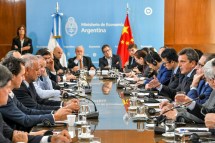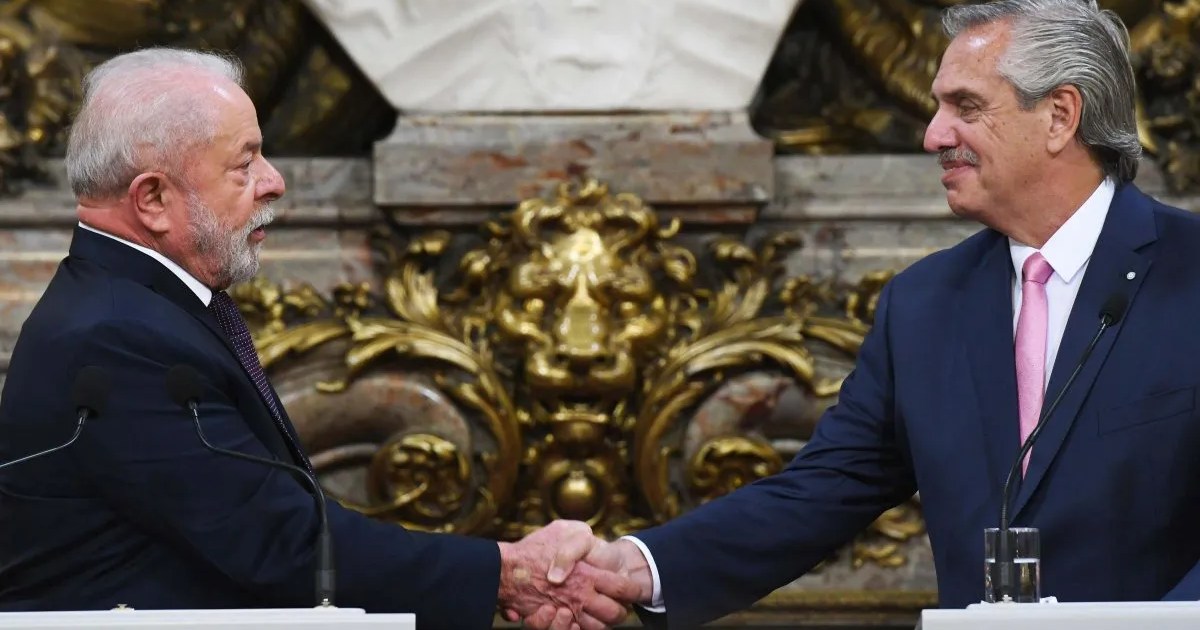President Alberto Fernández will meet this Tuesday with Brazilian President Luiz Inácio “Lula” Da Silva. An agreement will be signed at the meeting between the two countries that seeks exclude the dollar as a foreign trade payment currency.

In that way, the Argentine importing companies will be able pay their purchases in pesos and the Brazilian Government will convert them to reais. This will alleviate the requirement for reserves, at a time when the Argentine Central Bank finds itself almost without foreign currency for immediate use.
In the last hours, the Ministry of Economy and the Planalto Palace in Brazil intensified negotiations, prior to the trip of Sergio Massa and a group of officials to that country. The executive secretary of the Brazilian Ministry of Finance, Gabriel Galípolo, confirmed on Monday the progress in these negotiations.
The new scheme plans to leave in parentheses the use of North American currency to buy inputs from Brazil, through a financing mechanism from the Brazilian banking system to export companies that work with Argentine clients.
“We have been discussing what we call export credit for some time. In fact, it is financing for Brazilian companies that sell to Argentina, and it is these companies that import services and goods from Brazil»Gallipolo explained.
He noted that “in the last five years, due to the absence of mechanisms in Brazil to finance Brazilian exports and Argentine imports, we lost approximately US$ 6,000 million of space in the trade balance with Argentina to China, which has been making financing mechanisms possible in alternatives in the means of payment.”
Considered «It is important that these export lines are financing that pay directly to Brazilian companies. The risk and complexity of the situation is always lower than the traditional financial risk, when you finance a company and you don’t know if the company will be able to sell or not, because the demand for its products exists«.
The official’s clarification has to do with one of the doubts that arose in the Brazilian private sector when it became known about the negotiation of this financing scheme. Since it was related to the risk that it could imply for the lender and for the borrower, Argentina’s economic and financial fragility.
As detailed by the Vice Minister of Finance, around 210 Brazilian companies trade with Argentinawhom the authorities of the neighboring country consider “an important trading partner, mainly in industrial products, which have higher added value.”
The negotiations are carried out by Massa together with the head of advisers of the Ministry of Economy, Leonardo Madcur; and the vice president of the Central Bank, Lisandro Cleri, while the Brazilian counterpart is made up of Fernando Haddad, Galípolo and vice president Geraldo Alckmin.
«The problem that exists is the convertibility of the currency. You are going to sell in pesos in Argentina, and when you have to pay that loan here, what will happen is that you have a convertibility problem. Will the volume of pesos obtained from the sale be enough, when converted to real, to pay off the debt? All the complexity of the structure is how I manage to solve the problem of convertibility in a trade that today is carried out with a currency of a third country that does not participate in that trade”, said Galípolo, referring to the US dollar.

The importance of the National Bank for Economic and Social Development in the agreement between Argentina-Brazil
As he explained, the BNDES (National Bank for Economic and Social Development) would play a decisive role in this scheme.
“The BNDES has a lot of experience in that, the financing of exports. The role of the BNDES is fundamental in this process, but obviously there is a whole internal governance of the BNDES from the point of view of guarantees, requirements that must be met, and the BNDES has been supporting and participating in these discussions”, said Galípolo.
He maintained that “today all the multilateral banks have had a dialogue on the subject of Argentina. In the case of the New Development Bank, it has additional weight because we are talking about a second country, which is currently the main trading partner, which is China. Having a partner like China together in this dialogue is very relevant and helps a lot.«.
The scheme would allow accelerating the pace of imports: the vast majority of these authorizations in the SIRA system took 180 days.
With the yuan, they would be authorized in 90 days. The official plan includes schedule a volume of imports in yuan for more than USD 1,000 million starting next monthwhich replace the use of dollars from the Central Bank.
With information from Argentine News
To comment on this note you must have your digital access.
Subscribe to add your opinion!
Subscribe
